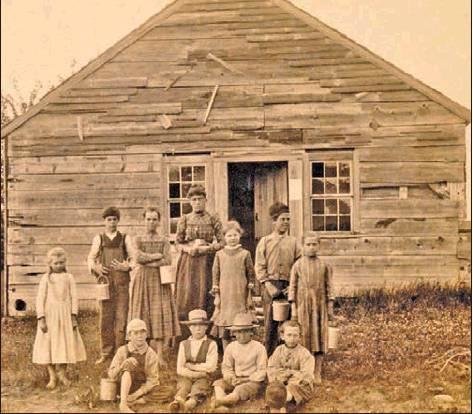What’s in your lunch pail?
Summertime means more free time for students.
If you were a student in the good old days, your free time turned into work time.
Has school changed much from times past?
A student’s …
This item is available in full to subscribers.
Subscribe to continue reading. Already a subscriber? Sign in
Get 50% of all subscriptions for a limited time. Subscribe today.
Please log in to continueNeed an account?
|
What’s in your lunch pail?
Summertime means more free time for students.
If you were a student in the good old days, your free time turned into work time.
Has school changed much from times past?
A student’s life of studying and learning is the same.
The methods and setting is different.
Forget 180 days. The school year back then was only 132 days.
Some kids didn’t go to school in spring or fall. They had to help on the farm during planting and harvest time. On “summer break,” you worked on the farm, harvested hay, hoed the garden and cared for the farm animals. You became a free farm hand. My grandmother used to say, “all we did was work.”
Heating or freezing
The 1-room schoolhouses had only windows for air conditioning and a wood stove in the winter to keep you from freezing.
Water was drawn from a well and held in a bucket in the room. Don’t tell OSHA or DHEC, but everyone drank from the same tin cup.
Students carried firewood for the stove, a metal pail, slate board and whatever books they could borrow.
Everyone took turns starting the fire in the mornings. Younger students sat in the front and older ones in the back. Older students helped the younger ones with lessons.
The buildings were as small as 20’ x 30’ and the outhouse was outside, an ordeal on frosty mornings.
Math problems were solved on slate boards.
Paper, inkwells and pens were expensive and only used for penmanship. Cursive was the only way to write. No printing allowed.
Tough love
Corporal punishment was the norm. Paddles and whacks on the palms and knuckles helped control those misbehaving or were late after recess.
The oldendays.yolsite.com says, “Many, if not all teachers had, or were reputed to have, a strap or a cane that was applied to the hand or buttocks of students who needed discipline when they stepped out of line.”
The other punishment was “writing lines,” like “I will not…” Perhaps this is why the older generations had such beautiful cursive handwriting.
School rules were different.
G.L. Summer, a teacher at the 1870 Crossroads School in Lexington, had stringent regulations. They included no laughing, no cutting or marking on wooden desks and no card playing on school grounds.
If you think these rules are strict, in Roman times, boys, aged 7-12 were beaten with a stick if they didn’t get the correct answers or learn fast enough.
Roman reasoning
Male Roman teachers believed beating students helped them learn quicker. I’m not sure that worked.
Students walked, rode horses or enjoyed a buggy ride to school.
We’re aggravated when stuck in traffic.
Try walking both ways in the cold, rain or heat to get to school.
Walking to school uphill both ways barefoot in the snow builds character. The school bell still rings, it is just an electronic one today.
Happy summer break to our students and teachers!
G.L Summer’s 1870
Crossroad school rules
1. Scholars, must obey the teacher in all things.
2. Scholars disobeying the teacher must suffer.
3. Scholars should not be allowed to carry firearms of any kind.
4. Boys and girls should not be allowed to play together.
5. The boys shall not sit with the girls.
6. No liquors shall not be allowed in the school, nor boys under the influence of it.
7. Good order and behavior is expected from all.
8. No scholar shall call each other nicknames.
9. No whispering should be allowed in the time of school.
10. No telling each other in time of recitation.
11. No fighting shall be allowed at any time.
12. No swearing or cussing.
13. No lying or telling an untruth at any time.
14. No laughing in study hours, or in class.
15. No scholar shall be allowed to go out of the house unless having permission from teacher.
16. No cutting or marks on desks or benches.
17. Perfect obedience to the rules is expected.
18. NO playing cards at school or on school grounds.
Other items that may interest you







Comments
No comments on this item Please log in to comment by clicking here